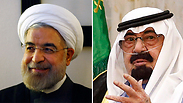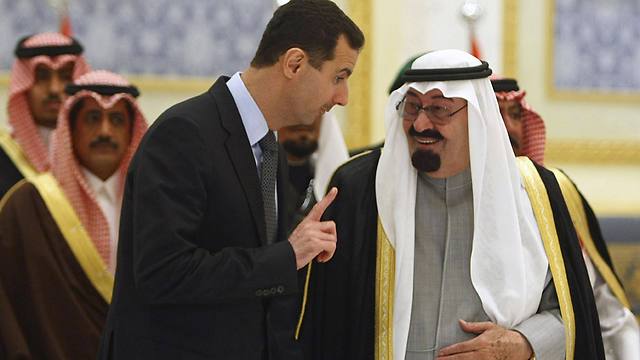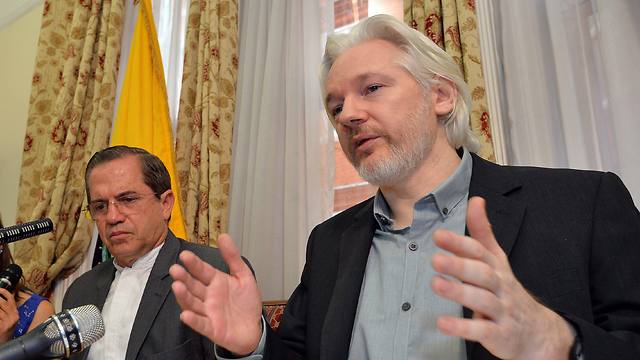
Leaked Saudi diplomatic cables reveal skepticism on Iran nuke talks
WikiLeaks begins release of massive trove of Saudi documents, exposing concern over US attitudes towards Iran and over a visit by students at the Israeli embassy in Washington.
The WikiLeaks media organization on Saturday began publishing some of what it says are more than 500,000 secret diplomatic documents sent by the Saudi government, which could expose details about the kingdom's relations with Iran and Israel.
The site has thus far released 60,000 of the cables, mostly in Arabic.
If the documents are indeed authentic, they may provide a rare look into the internal workings of the conservative monarchy, which is one of the strictest dictatorships in the world.
A document from 2012 released on Saturday reveals skepticism among the Saudis about nuclear talks with Iran. A cable from the Saudi embassy in Tehran to the Foreign Ministry in Riyadh described "flirtatious American messages" passed to Iran through an unidentified Turkish mediator.
Another missive from 2012, sent from the Saudi embassy in Abu Dhabi, stated that the United Arab Emirates was applying "heavy pressure" on the new Egyptian government to refrain from prosecuting ousted president Hosni Mubarak.
In a cable sent on August 14, 2008 and marked as classified and extremely urgent, the Saudi Foreign Ministry warned the Saudi embassy in Washington that dozens of students from Saudi Arabia and other Gulf nations visited the Israeli embassy in the US capital as part of an international leadership program.
"They listened to briefings by embassy employees, asked questions, and had pictures taken," the message stated. The Saudi Foreign Ministry asked the embassy in the US to quickly prepare a report on the matter.

While it was not immediately clear how WikiLeaks obtained the documents, the site did refer to a recent cyber attack targeting the Saudi Foreign Ministry by a group calling itself the Yemen Cyber Army.
WikiLeaks declared that the documents were released to mark the third anniversary of founder Julian Assange's escape to the Ecuadorian embassy in London, where he seeks asylum in order to avoid extradition to Sweden. He faces charges of sexual offenses in Sweden and claims that the accusation are part of an American and international conspiracy to prevent him from leaking information.
Meanwhile, Saudi Arabia has been handling the leaks by attempting to keep its citizens from reading them. The Saudi Foreign Ministry used Twitter on Friday night to warn citizens not to go online to read the documents, saying the information could be false and "harmful to the motherland". The statement urged Saudis: "Do not help the motherland's enemies attain their goals."











